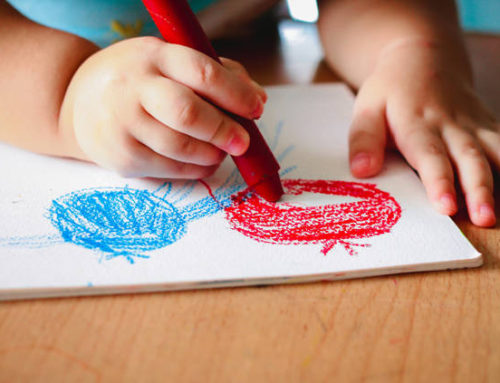Fine motor development includes the development of the small muscles of the body, namely the tiny muscles of hands, feet, eyes and mouth. While the gross motor muscles are required mostly for endurance, strength and whole-body movement, fine motor muscles are used mostly for control, precision and coordination. Gross motor muscles are used for a large muscle activity such as throwing and catching a ball or jumping whereas fine motor muscles are used for smaller muscle activities such as tying shoelaces, drawing and threading beads.
Fine motor development can be broken down below according to the age appropriate norms of babies and toddlers:
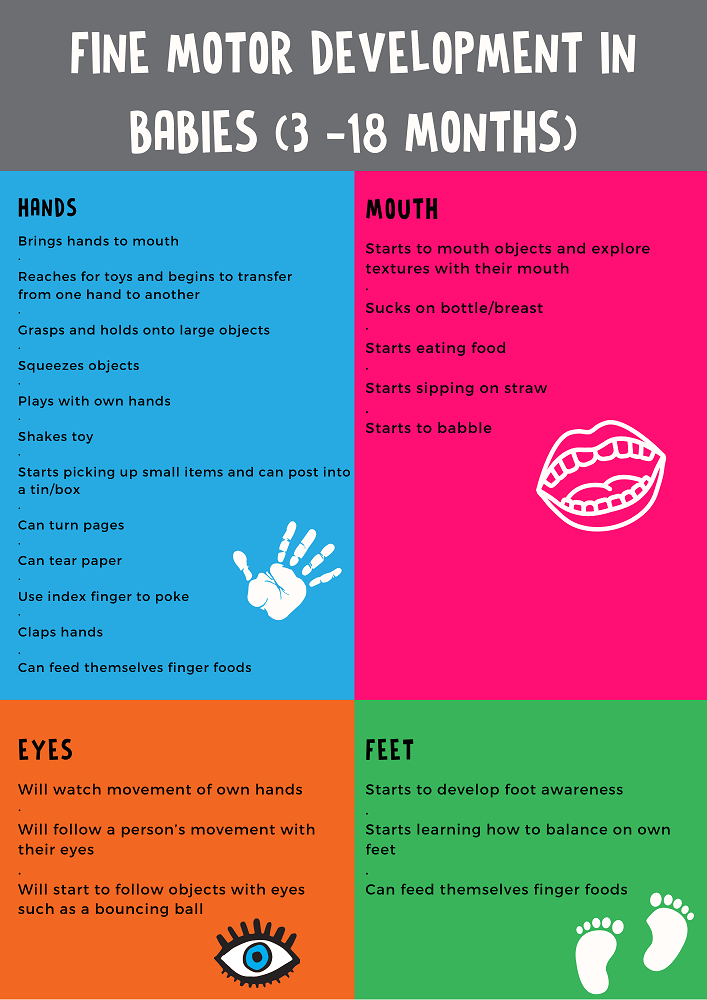
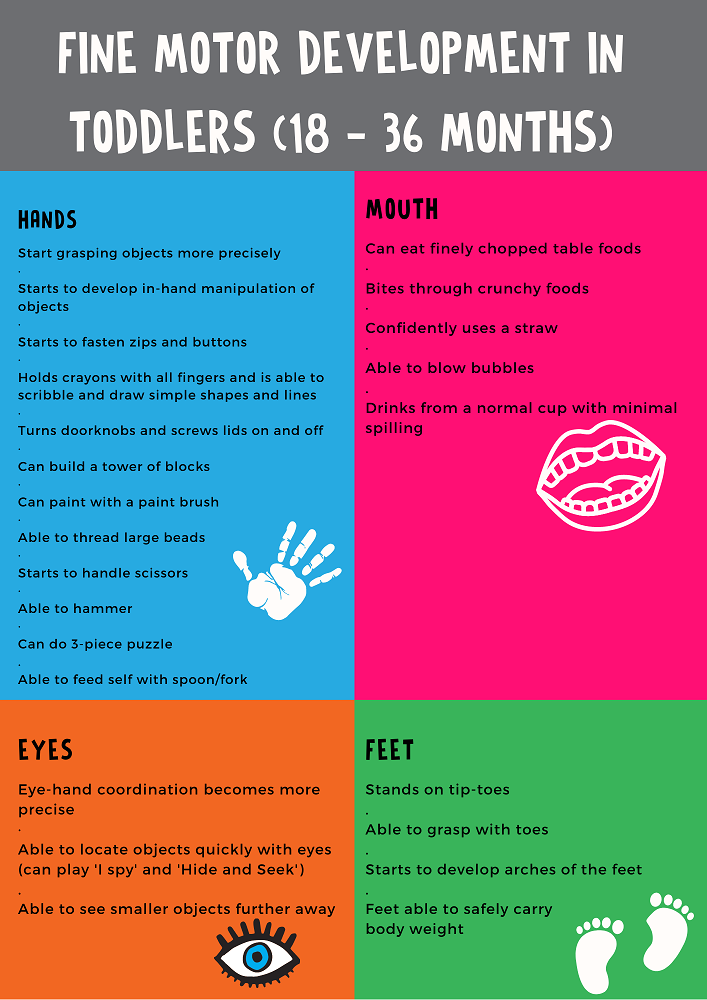
Fine motor skills are important to enable children to participate in everyday tasks including:
- Self-care such as doing buttons, zips, tying shoelaces, brushing teeth and feeding themselves
- Outdoor play such as gripping onto monkey bars and holding sporting equipment
- Play activities that include threading, arts and crafts, puzzles, lego and dressing dolls
- School-based tasks such as cutting, writing, drawing, sticking, and turning pages
The large and small muscles of the body work together to enable us to perform all the necessary functions and tasks we are required to perform throughout the day. If we do not assist our children with fine motor development, the small muscles of their body may not be strong enough or coordinated enough to execute age appropriate tasks. This will cause children to become frustrated and upset when not being able to complete everyday tasks and may even cause them to avoid fine motor tasks completely. This can also have a great impact on their self-esteem as their friends would be able to participate and engage in tasks that they aren’t able to or do not enjoy. The more children practice fine motor tasks the more controlled and precise their movements will become and the more endurance they will build up in the small muscles to be able to participate in tasks for increasingly longer periods of time as they get older.
Hand function skills are particularly important for children during their early schooling years. Thus, making the fine motor development of the hands an essential component required for basic academic skills. From pre-school, children engage in activities such as tracing, drawing, writing, colouring, sticking and cutting which all involve a degree of fine motor control and strength. As they move to higher grades, the amount of control and precision required of them increases and therefore so must their fine motor skills. Below are some of the basic hand components required for children to be able to successfully execute fine motor tasks at school:
- Wrist, hand and finger strength – weakness in the wrist, hand and fingers can cause children to tire during table-top tasks and prevent them from being able to complete these tasks in time or to the best of their ability. The best way to build strength is to add resistance which is why play dough/clay is such an effective fine motor activity for little ones.
- Fine motor control – a lack of control and precision will reduce the quality of the child’s work
- Eye-hand coordination – when the eyes and hands are not communicating well, children may struggle to trace, draw, and colour accurately and may not be able to write or cut neatly between or on the lines
- Pencil grip – a poor pencil grip places strain on the tiny muscles of the fingers and limits the child’s endurance in being able to participate in a written task
- Separation of the hand – in order to write in a controlled manner, children need to learn how to separate their hand meaning that half of the hand (thumb, index and middle finger) is required to hold the writing tool and perform coordinated movements (mobility ), whereas the other half of the hand (ring and small finger) is required to remain steady and still (stability). Without good separation of the hand, children will have limited refined finger movements.
- Refined finger movements – these are the tiny movements of the fingers that allow for small movements while colouring, writing, drawing, and tracing. Refined finger movements are vitally important for speed, coordination, and control.
Because children’s ability is often measured by the knowledge they put down on paper at school, it is crucial that they are able to write well and accurately so that their potential is not hindered in anyway by their writing skills. This will ensure that they can express themselves freely on paper, without having to worry about the actual output of writing. When a child has to worry about trying to hold their pencil correctly or trying to stay within the lines, less brain power is devoted to actually learning the work. This is why fun fine motor activities are promoted from toddler years into pre-school – to ensure our little ones’ fine motor skills are adequate in order to perform higher level school related tasks at a later stage.
Often children have a negative attitude towards school at a young age because they aren’t able to perform certain age appropriate tasks due to a lack of fine motor skills and not due to a lack of intelligence or capability. This is why it’s so important to encourage fine motor activities through play at an early age. Children will experience enjoyment through play and develop the confidence and skills required for what’s to come later in their schooling.
The development of the muscles in the mouth, eyes and feet are just as important as those in the hands. The tiny muscles of the mouth assist us with speech, eating and drinking. The tiny muscles of the eyes assist us with tracking moving objects which later translates into the ability to read smoothly from left to right and to copy accurately from the board. The tiny muscles of the feet assist us with formation of the arches, balance, standing on our tip toes and gripping with our toes. You will be surprised how crucial each one of these is to a child’s overall development.
Here are some Nanny ‘n Me inspired fine motor play activities that I have recently enjoyed with my toddler. If you have any questions on fine motor development and how to adapt these activities specifically for your own child, please don’t hesitate to contact me. If you are concerned about your child’s fine motor abilities, it would be beneficial to have them assessed by a qualified occupational therapist, in order to determine if they are performing at an age appropriate level.
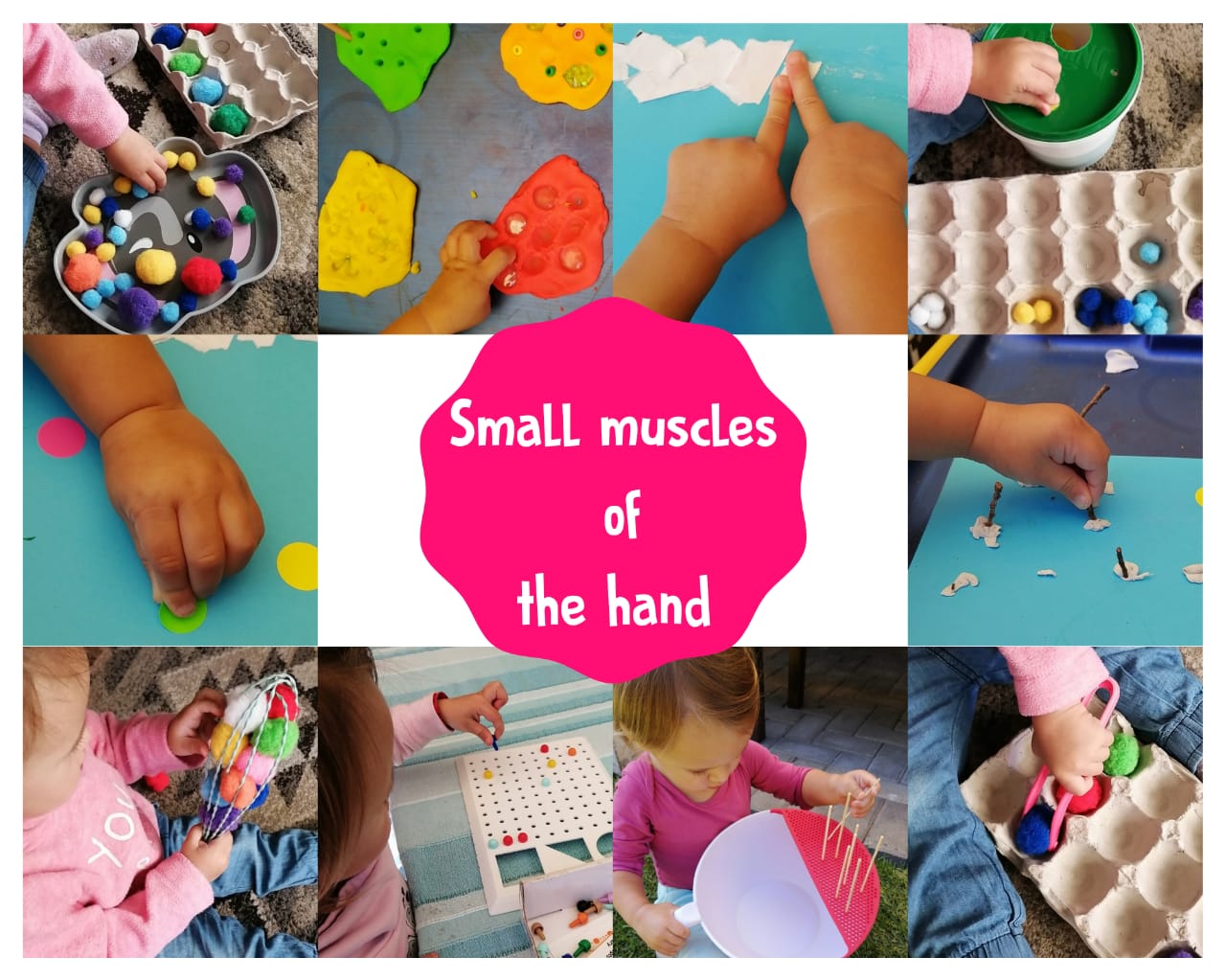
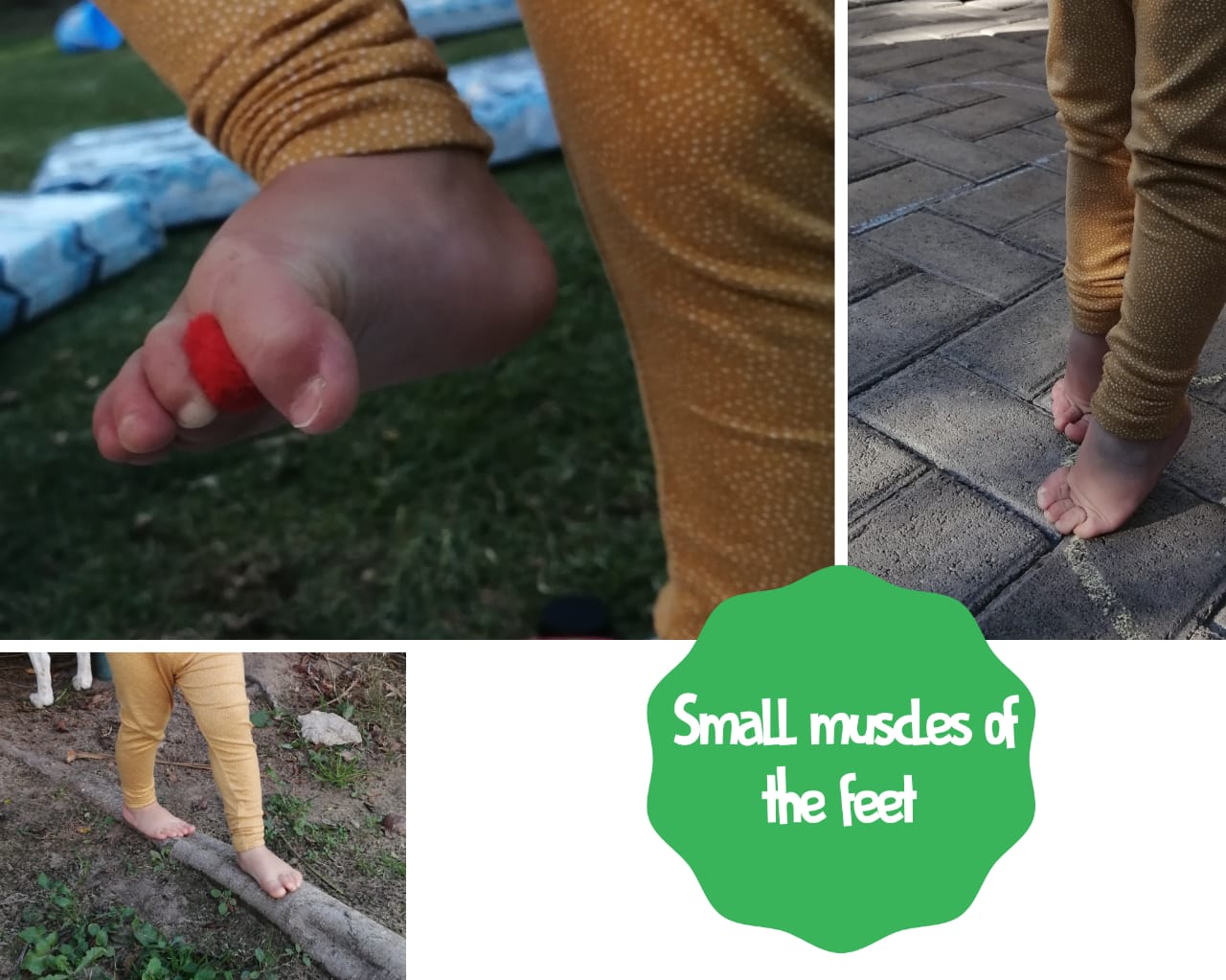
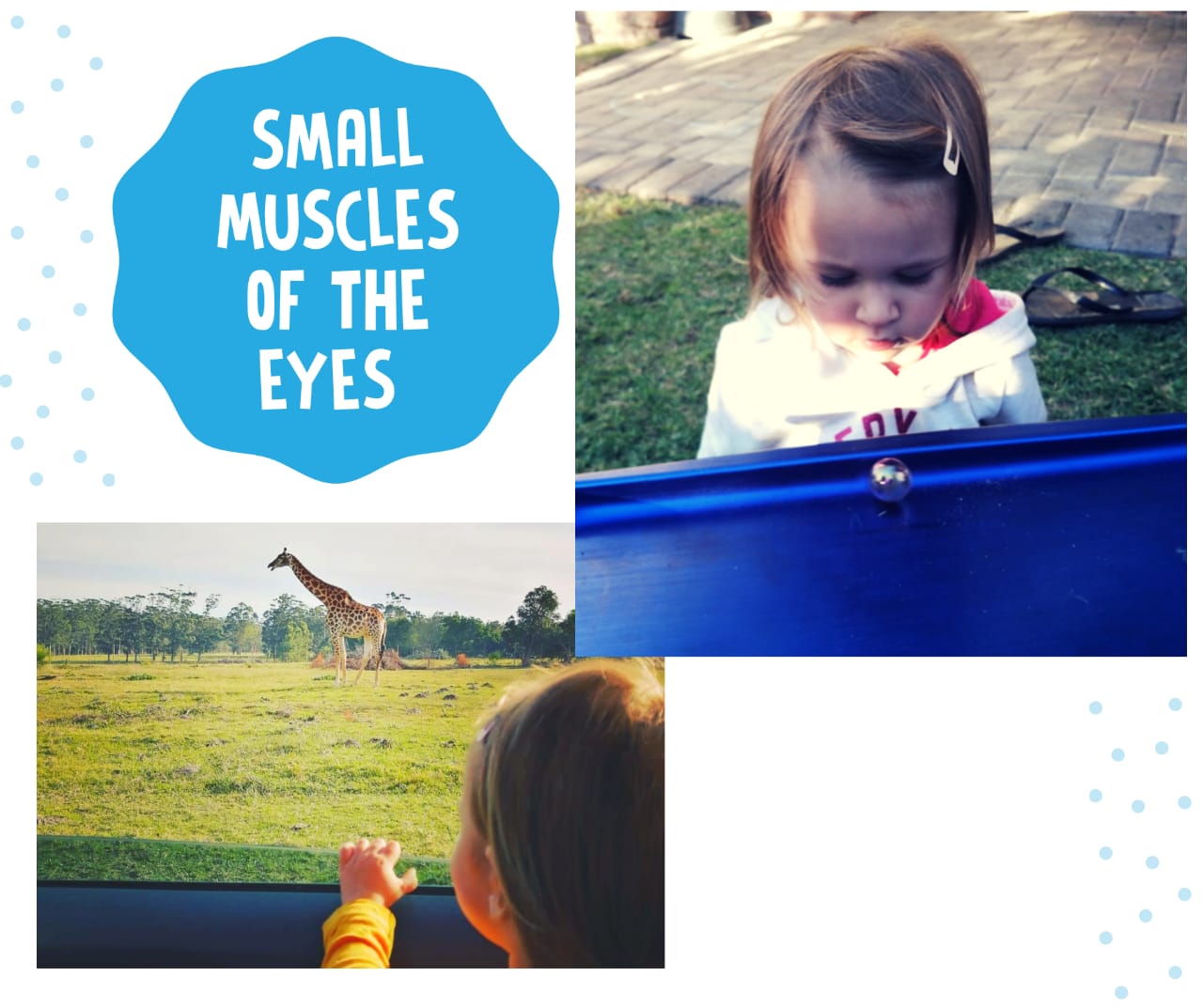
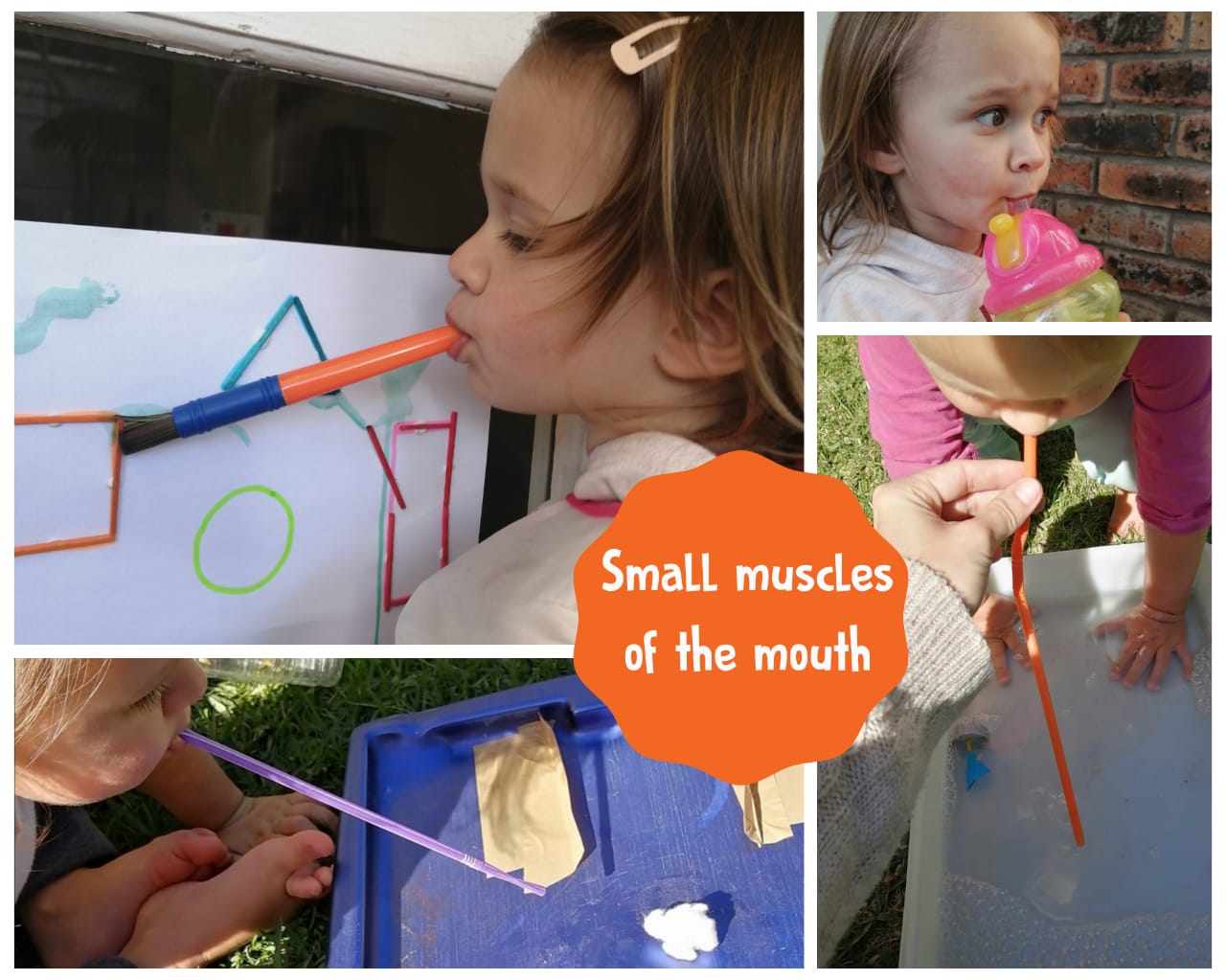
Occupational Therapist and Owner of Nanny ‘n Me Franchise Port Elizabeth







